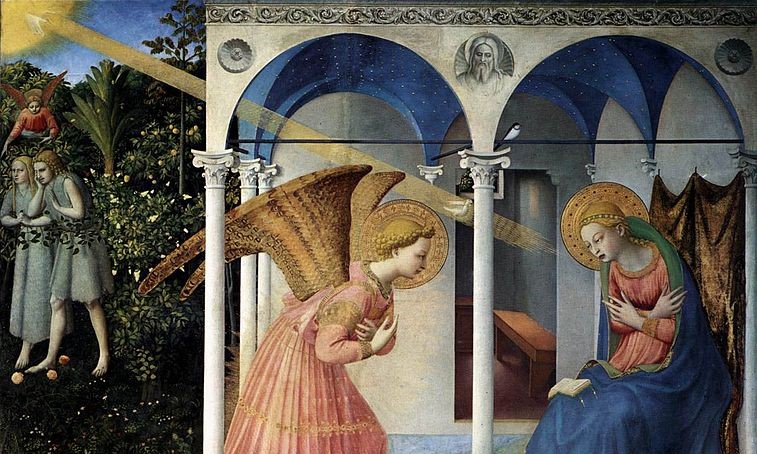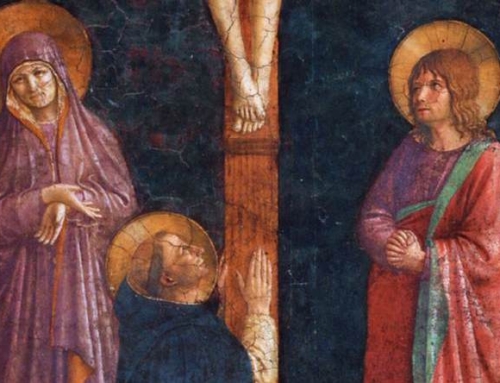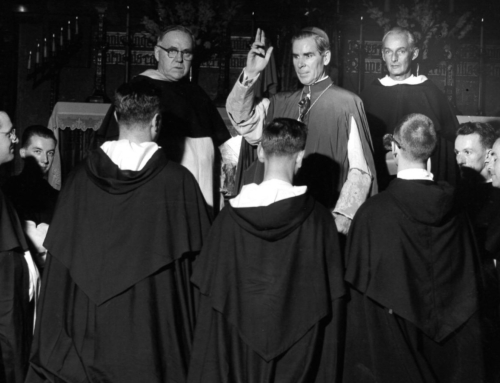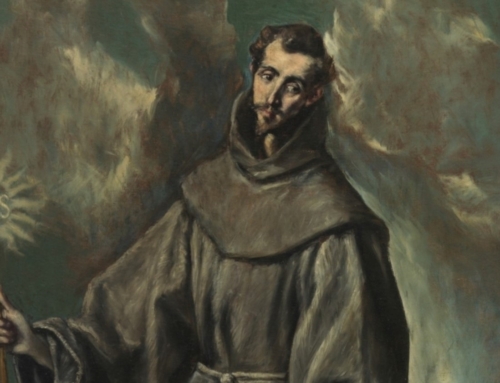2020 Advent Series: O Antiphons
This is the introductory piece to our Advent series on the O Antiphons, which will continue daily through December 23.
My soul proclaims the greatness of the Lord, my spirit rejoices in God my savior.” These opening words of the Magnificat, which we pray every evening at Vespers throughout the year, take on greater immediacy in this holy season of Advent—and even more so in these seven days leading up to Christmas Eve. In these final days of Advent, we join expectant hearts with Our Lady by adorning her triumphant hymn of praise with a series of O Antiphons, fervent prayers addressed to Christ using titles given him in the Old Testament.
The O Antiphons, named such because each antiphon begins with that interjection, bear an easily recognizable relationship with the Magnificat as prayers of joyful expectation. However, they also complement the Magnificat in ways that may go unnoticed without closer theological reflection.
In the first antiphon on December 17, for instance, we address Christ as “O Wisdom of our God Most High” and ask him to come and “teach us the path of knowledge.” Then the Magnificat follows, as if in response to our longing for the coming of the Messiah. Our Lady, full of grace and jubilation, recounts the Lord’s promises to Israel and proclaims them already fulfilled—a message she uniquely bears as the Mother of God, as one who newly carries our Savior in her womb following the announcement of the angel.
What could Our Lady possibly mean by proclaiming that the hopes and expectations of the people of God were already fulfilled? “He has shown the strength of his arm,” she announces. “He has cast down the mighty from their thrones, and has lifted up the lowly.” These things have already taken place, she reveals to us, in that the child Jesus is even now present on earth, though concealed within her womb. For this reason, she confidently proclaims that the Lord “has remembered his promise of mercy, the promise he made to our fathers.” She knows the significance of her fiat, her privileged role as God-bearer for the sake of our salvation.
Our Lady was a woman of the word, who “kept all these things, reflecting on them in her heart” (Luke 2:19). The Magnificat shows her extensive knowledge of Scriptures and prophetic understanding of the Lord’s coming as the decisive turning point in salvation history. And so, with Our Lady, we contemplate the mystery of the coming of our Savior by praying the O Antiphons: we call him Emmanuel (Isa 7:14), King of the Nations (Isa 2:4), Rising Dawn (Zech 6:12), Key of David (Isa 22:22), Root of Jesse (Isa 11:1), Adonai (Exod 4:10), and Wisdom (Sir 24:3). We join in her rejoicing that the Lord’s promises to Israel have been fulfilled through the Word made flesh in her. Let us ask for the intercession of the Blessed Virgin, that we may bear the Christ child as tenderly in our hearts as she bore him in her womb.
✠
Image: Fra Angelico, The Annunciation







